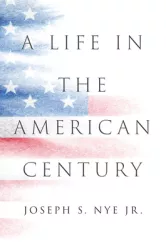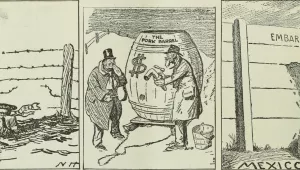Media reports of intense disagreements within the Obama administration with respect to policy toward Syria should come as no surprise. For decades, Washington policymakers and pundits have debated the right balance between America’s democratic values and its national interests.
This interplay was evident in 1971 as Richard Nixon and Henry Kissinger sought an opening to China. Halfway through delicate secret diplomacy, the intermediary, Pakistan, plunged into political stalemate and then a massive human rights crisis. Amid communal massacres, a refugee crisis, guerrilla conflict and war between India and Pakistan, East Pakistan achieved independence as Bangladesh — a struggle in which hundreds of thousands are believed to have perished.
In his recent book “The Blood Telegram,” Princeton professor Gary Bass smears Nixon and Kissinger as heartless villains of these events. In language reminiscent of President Obama’s more unreasonable critics regarding the Syrian tragedy, Bass accuses them of “significant complicity in the slaughter of the Bengalis.” He argues that Nixon and Kissinger could have coerced Pakistan to end its violence against Bengali Hindus and that they should have cut their Islamabad channel to China.
Bass’s charges rest on a singular focus on human rights at the expense of U.S. national interests and a persistent misreading of the diplomatic record. Pakistani President Yahya Khan emerged as Beijing’s preferred channel for U.S.-China rapprochement before the political crisis erupted in East Pakistan, and China reaffirmed his role during the turmoil. In December 1970, Beijing sent a breakthrough message through Pakistan (“a great friend of China”). In April 1971 the Chineseinvited a U.S. envoy for high-level talks, suggesting that arrangements “be made through the good offices of President Yahya Khan.”
Imagine the Chinese reaction if U.S. officials had informed Beijing at an enormously sensitive moment that its watershed invitation to improve relations had been misdirected and that the Pakistan channel was unacceptable. Who could have known how long Chinese Premier Zhou Enlai would have been in a sufficiently strong bureaucratic position to pursue a breakthrough with Washington? (Just two years later, he was denounced by ultra-leftists and purged.) Who could have been sure that Mao Zedong would not have reversed course and sought to solve his Soviet problem through rapprochement with Moscow? And what conclusions might Beijing have drawn regarding U.S. credibility if the United States, as Bass wanted, had dramatically changed course and abandoned a longtime ally during the defining crisis of its independent existence?
Ignoring these crucial questions, Bass argues that Nixon and Kissinger should have conducted an all-out public human rights campaign against the Pakistani government, much as some in Washington now advocate regarding Egypt. Kissinger sensibly concluded that such a crusade would not have fundamentally altered Islamabad’s internal policy — similar questions should be asked regarding the current Egyptian government — and the China opening could well have collapsed.
In “White House Years,” Kissinger wrote: “The character of leaders is tested by their willingness to persevere in the face of uncertainty and to build for a future they can neither demonstrate nor fully discern.” Nixon and Kissinger surely met that test during the South Asia crisis of 1971.Their geopolitical efforts, which Bass derides, produced an extraordinarily productive visit by Nixon to China in February 1972 and the signing of the Shanghai Communique, which serves as the basic framework for U.S.-China relations to this day; a broad, bipartisan U.S. policy approach to China that has lasted for more than 40 years and has promoted peace and stability throughout Asia; major U.S.-China intelligence cooperation against the Soviet Union; and a May 1972 Nixon-Brezhnev summit in Moscow, where the Anti-Ballistic Missile Treaty, the first Strategic Arms Limitation Treaty and the U.S.-Soviet Incidents at Sea agreement were signed.
All are hallmarks of a detente that reduced the risk of superpower confrontation while helping to undermine the Soviet Union’s moral and geopolitical claims and, ultimately, bring about its destruction.
At the same time, no nation except India did as much as the United States to directly address the human tragedy in East Pakistan. Nixon approved hundreds of thousands of tons of emergency food aid immediately after a cyclone hit the region in November 1970 and throughout the crisis, as well as extensive financial assistance for refugees in both India and Pakistan, and the use of U.S. transport planes to airlift food and refugees in India.
The quintessentially American debate about national interests and democratic values is unlikely to go away. But as these issues arise, we might have more sympathy for those at the top of the U.S. government who have to make momentous decisions. As Kissinger observed, “The analyst runs no risk. If his conclusions prove wrong, he can write another treatise. The statesman is permitted only one guess; his mistakes are irretrievable.”
Blackwill, Robert. “Should American Values Trump American Interests?.” The Washington Post, November 29, 2013


